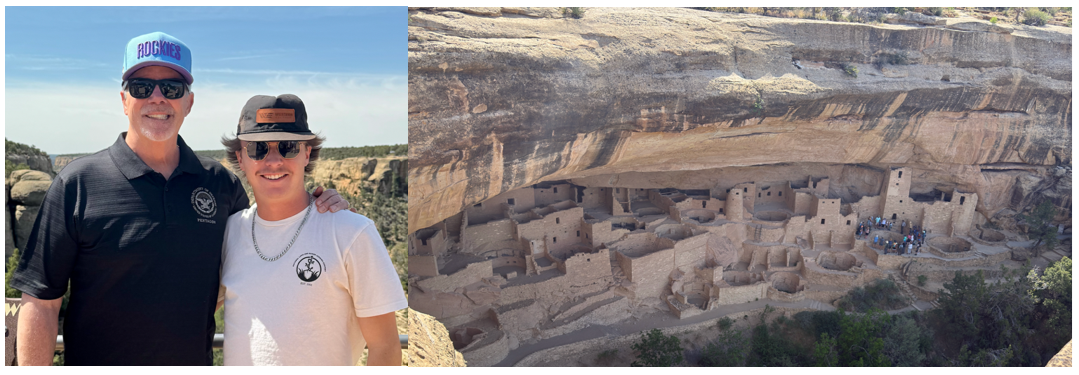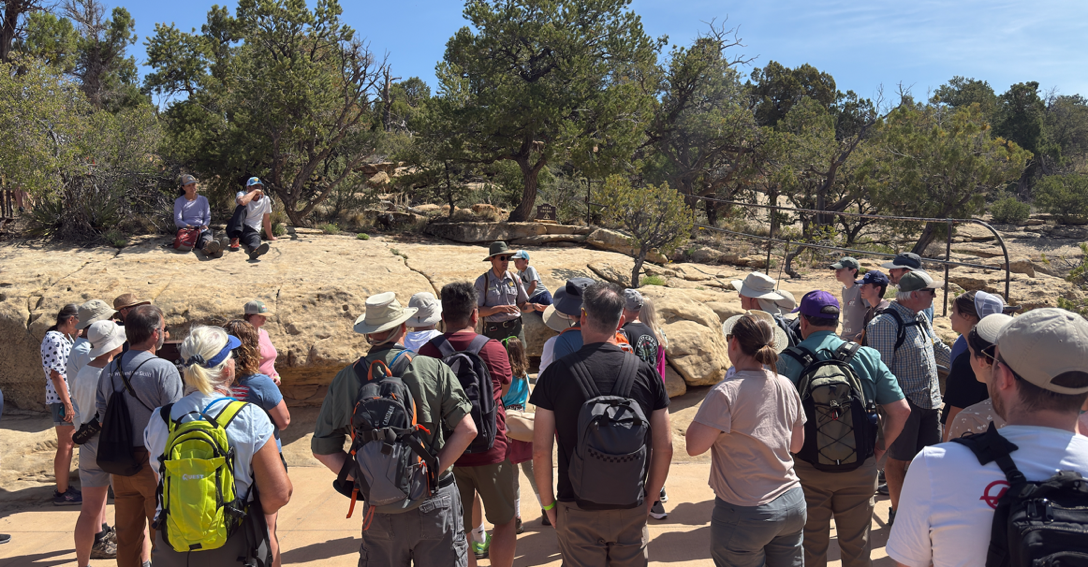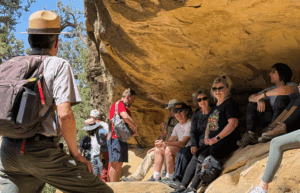
We recently were on a graduation celebration trip with our oldest grandson; Dax Graham Black where we toured the Mesa Verde National Park. We had two different guides take us through a couple of the main attractions there: The Cliff House and The Balcony House.

I had this thought as they inspired and educated us on how the cliff dwellings were created and why they were deserted after hundreds of years. Very specific details that had us hanging on every word:
“That’s how we all should be as managers, directors and leadership in our grocery companies. Imagine your team standing around you in a bit of a huddle, and you’re just teaching them from your many years of experience and knowledge on how to be successful in the grocery business and answering any questions they have.”
The guides were masters at answering any questions anyone in the group had, first by saying when they opened it up for questions, “That’s a great question”, then they’d share the specifics of the question and I again, wondered how much better our teams would be if we’d just ask them if they had any questions and then answer them in very specific details. Many of the questions people asked on the tour were obvious to me what the answer was. But it was a great reminder that we should never assume our teams know the things we know after being in the business for 20-30-40 plus years.

A national park tour guide is a fantastic example of leadership in action—it’s not just about showing people around, but about inspiring, educating, and ensuring a memorable experience. Here’s how leadership qualities come into play:
1. Charisma & Presence
2. Empathy & Emotional Intelligence
3. Resilience & Adaptability
4. Integrity & Responsibility
5. Customer-Centric Thinking
6. Strategic Communication & Planning
This kind of leadership doesn’t just apply to park guides—it’s essential in any role that involves guiding others, fostering engagement, and balancing structure with adaptability.

One of my favorite all-time John Maxwell books is, “Everyone Communicates, Few Connect”. In this book, John shares his experience with a good tour guide and a bad one. Think about the tours you’ve been on, which ones do you remember? Which ones were disappointing? And what was the biggest difference?
This lesson goes hand in hand with the June Leadership article on Please, Please Don’t Ignore me. It’s what I call customer-centric engagement, or in this month’s vein, Lead like a National Parks Guide using these steps, it will build trust and loyalty with our customers:

1. Find Common Ground – Personalization & Empathy
2. Keep It Interesting – Storytelling & Engagement
3. Inspire with Passion – Authenticity & Energy
4. Live Your Message – Integrity & Consistency
5. Connect Across Different Settings – Adaptability & Reach
I believe that a consistent experience is the key to long-term success. When our teams keep our customers’ needs in mind, and everyone truly understands the role they need to play in connecting instead of just communicating, we’ll see success we never imagined!
As we all know, the weekly task of buying groceries is one that a lot of people dread. We can make their dreaded shopping experience fun if we’ll embody the qualities of a tour guide and as you know, this same mindset works with our teams.
I’ve always loved having morning team huddles out on the sales floor. We’d review the previous days sales together and get feedback from each department manager on any issues they were having. This is also great for celebrating wins in each department together. Remember, what we focus on gets better – so let’s focus on the wins!
One of my chapters in the book, The 5 Rules is a titled; “Walk Slowly Through the Crowds”. This story is about walking slowly through your store, stopping to engage with customers, checking in with team members and collaborating with your vendor partners. You can do this in an amazing way by slowing down and using this method mixed with the qualities of the tour guide listed above.
This month’s challenge: be inspiring, educating, and ensuring a memorable experience to everyone that comes through our doors, and we’ll be miles ahead of the competition.
Let’s win this next decade in the grocery business by doing these things every day, in every store, in every department by truly connecting – not just communicating!
